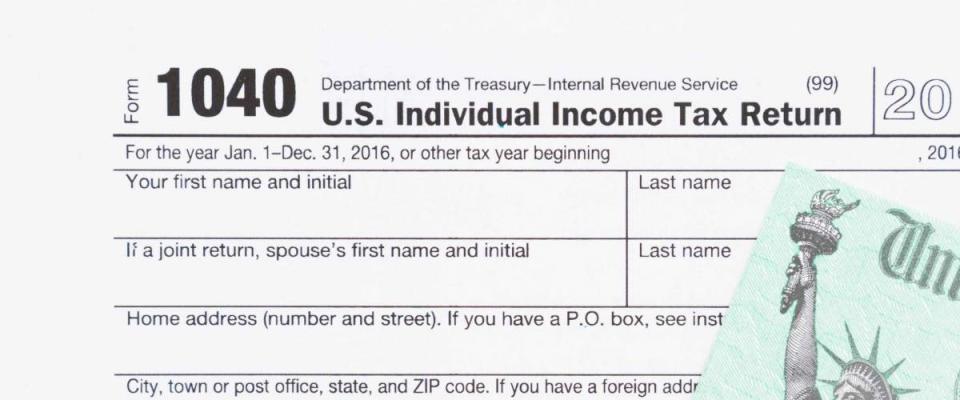Unemployment tax refund could put thousands back in your pocket

For the millions of Americans who filed for unemployment last year, federal support came with a price tag: A big tax bill at the end of the year.
But President Joe Biden’s $1.9 trillion COVID relief bill, which passed in mid-March, includes a provision waiving taxes on the first $10,200 taxpayers received in federal unemployment benefits in 2020. The tax break will reportedly put a total of $25 billion back in Americans’ wallets.
That means if you received unemployment last year and you’ve already filed your taxes, the IRS may send you a special refund as soon as next month to help cover your household expenses or pay down debt.
Depending on how much you received in benefits last year, along with your income and filing status, you could see a refund of $1,000 to $3,800, according to multiple media reports.
Here’s more on who qualifies for a refund and what they’ll have to go to get their money.
How did this happen?

When the pandemic hit, millions of Americans were pushed out of the workforce. Suddenly, people who’d never been out of work were filing for unemployment benefits for the first time.
And then when tax time came, some were surprised by how much tax was owing on the benefits they received over the year.
But by the time the bill was signed in March, many who qualify for the tax break had already filed their taxes and paid what they owed on the benefits.
Now, the IRS has announced those taxpayers will be getting refunds starting in May.
Who qualifies for a refund?

The refunds will be going to the taxpayers who filed their federal tax returns without claiming the break on any unemployment benefits they received in 2020.
Anyone with an income below $150,000 who claimed federal unemployment benefits last year is eligible for the refund.
Typically, unemployment benefits are taxed like any other income.
Biden’s legislation changes the rules for this year to ensure individual taxpayers who received federal unemployment benefits won’t have to pay tax on the first $10,200 they received, while couples filing jointly will be exempt from paying taxes on $20,400 of benefits.
If you’ve yet to file your taxes, you won’t be getting a refund, but your benefits up to the $10,200 won’t be taxed, which will significantly reduce your tax liability this year.
What do I have to do?

If you already filed your taxes before you knew these benefits were exempt from taxes, you don’t have to do anything.
Starting next month and stretching out over the summer, the IRS will automatically issue refunds to taxpayers based on a recalculation of your tax liability.
Most taxpayers won’t have to file an amended return, unless other factors call for it. That would include anyone whose recalculated taxable income makes them eligible for certain tax credits or benefits like the earned-income tax credit (EITC).
In that case, you’d want to refile because, depending on your number of dependents, you could be entitled to an EITC of up to $6,660.
Even though the IRS has waived federal taxes on your unemployment benefits, you may have to pay some tax on that money. Depending on where you live, your state may charge income tax on your benefits.
What to do if you need money right now

If you can’t wait a month for your refund and you need a little help with your bills right now, you have a few options.
Slash your insurance premiums. Having insurance is a must, but overpaying is not. If you think your car insurer is taking you for a ride, it may be time to shop around for a better deal. And while you’re looking, why not also save hundreds on homeowners insurance by comparing rates to find a lower price?
Get an education in savings. With $1.6 trillion in student loan debt reported last year, Americans are paying a hefty price for higher education. But simply refinancing your student loan could save you hundreds of dollars a month and help you pay it off sooner.
Find your own refund in your current budget. By finding a few creative ways to cut back, you can possibly rearrange your budget to find another chunk of cash. Plan your shopping list before you go to the grocery store to avoid impulse buys. And after you’re done at the shops, earn some cash back just by taking photos of your receipts. Have a hobby or special talent? Set up a freelancer profile and turn it into a side hustle to bring in extra income. And, you can download a free browser extension that will automatically scour for better prices and coupons whenever you shop online.

 Yahoo Finance
Yahoo Finance 